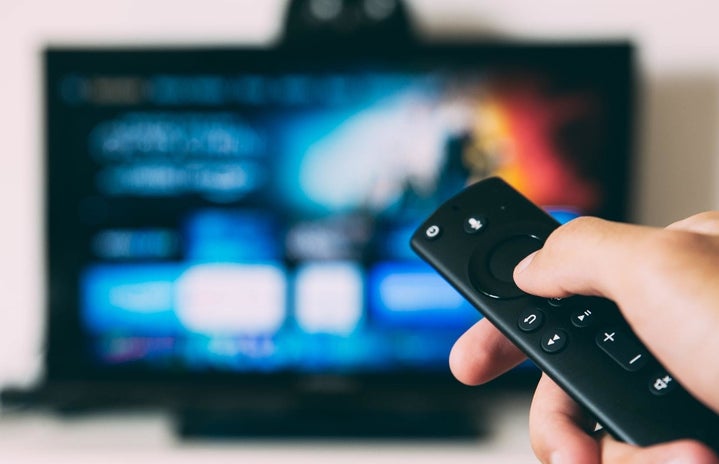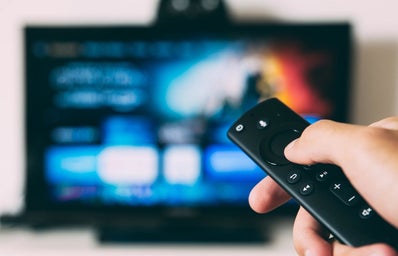Boy Meets World was a coming-of-age sitcom that originally aired in the ‘90s. As the main characters grew from children to teenagers, the show shifted from Disney Channel to ABC. All 7 seasons of the show are now available on Disney+. The show focused just as much on teaching valuable life lessons as it did on making the audience laugh. Former cast members Danielle Fishel-Carp, Rider Strong, and Will Friedel have started a podcast, called Pod Meets World, in which they rewatch and react to the show. On their podcast, they acknowledged that although many fans view their show as “woke”, it was not always perfect or politically correct by modern standards or by the standards of the 90s. Of course, your personal definition of the word “woke” may vary depending on where you live and how you were raised. Personally, I would define “woke” as an awareness of the issues present within our society.
Very early on in the series, an episode acknowledging and denouncing racism was aired. In Season 1 Episode 8, “Teacher’s Bet”, Cory claims that his class doesn’t need to learn about history, since the world has completely changed over time. After his older brother’s girlfriend is called a racist slur at their local mall, Cory realizes that important lessons can be learned from historical events like the holocaust. Airing an episode like this so early in the show likely gave fans some hope that the rest of the series would be more racially diverse and inclusive than other shows. Unfortunately, this was not the case, as this was the only episode to feature an Asian character, and only 77 of their 158 episodes featured a black person as a main character. Nowadays, audiences expect more diversity within television shows.
In Season 1 Episode 4, “Cory’s Alternative Friends”, the very progressive hippie character Topanga is introduced. In this episode, she performs a contemporary dance set to a poem she wrote about the negative effects of climate change on humpback whales. At the end of the episode, she and Cory led a peaceful protest against the ageism faced by their school librarian. While some fans believe that this character was added to promote liberalism, others believed that she was added to poke fun at liberals. Regardless, Topanga eventually strayed from her feminist hippie personality. Over the course of the show, Topanga slowly shifts away from her interests in yoga and astrology to focus more on her studies and her boyfriend. During the last two seasons, she was sometimes portrayed as studious and ambitious, but more often than not, she was portrayed as Cory’s nagging wife. Some fans argue that this is a realistic portrayal of growing up, while others argue that her character lost her individuality. On a recent episode of Pod Meets World, Fishel-Carp, the actress who played Topanga, mentioned that she has a memory of being told that they made her character “more normal” after Season 1 in order to make her more compatible with Cory. As a female fan, I find this disgraceful, as it may have taught young girls that they need to change themselves in order to find love. It is also possible that this change in Topanga’s personality and values might not have occurred if the show had more female writers.
Speaking of female writers, there was some behind-the-scenes drama that caused April Kelly and Janette Kotchitas to leave the show after the first season. In a letter to the cast and the fans of their podcast, Kelly stated that she tried to keep the younger cast members sheltered from the drama. Fishel-Carp, Strong, and Friedel all agree that she was successful in this, as they had no idea that there was any tension or serious arguments between the writers. When Kotchitas guest starred on their podcast, she revealed that the original concept for ‘Boy Meets World’, in which the books and lessons being taught in class would always relate to what is currently going on in the main character’s life, was proposed to Disney by Kelly, not by executive producer Michael Jacobs. This fun fact becomes a not-so-fun fact after hearing why Kelly left her own show. Kotichas revealed that the writer’s room was often separated into two opposing groups, one led by Jacobs, and the other led by Kelly. Although Kotichas did not explicitly explain what most of the writers’ debates were about, she did mention hearing the phrase “women aren’t funny” coming from the writers’ room on a few occasions. The writer’s room had a metaphorical revolving door, as the team changed almost every season. Across all seven seasons, there was a total of 44 writers, including 27 men and 17 women. There were more men than women on the writing staff of every season.
Despite this sexism, the show was often progressive in other ways. Although this episode mostly revolves around the concepts of gender and consent, it also includes a comment denouncing black face. Towards the beginning of the episode, their teacher Mr. Feeny introduces the book Black Like Me, in which the main character dresses up in black face in an effort to learn what racism is really like. Cory raises his hand and says, “Couldn’t he have just… asked?” This comment points out the irony in the plot of Black Like Me. Contrary to his comment, the plot of this book inspires Cory and Shawn to dress up as girls in order to understand dating from their perspective. Topanga is immediately accepting of this idea and helps them dress up. The episode subtly denounces toxic masculinity by showing how confident the boys are, even when they are dressed up as girls. When Shawn, still dressed as a girl, goes on a date with a male classmate, he learns the importance of asking for consent. So, during this episode, the show was able to subtly denounce black face and toxic masculinity, while emphasizing the importance of asking for consent.
These three episodes are not the only examples of how the show raised awareness for issues within our society. In Season 2 Episode 4, Cory and Shawn try to form a worker’s union in their school. In Season 3 Episode 2, the new journalism teacher, Eli Williams, tries to teach the students about the importance of honesty within news media. In Season 4 Episode 10, the boys notice how the conflicts between the Hutus and the Tutsis are not just a foreign issue, as there is also classism within their own community. In Season 7 Episode 17, Topanga struggles with body image issues, but her friends reassure her that her body is beautiful, and she doesn’t need to starve herself.
Although the show was not perfect, Boy Meets World was still very entertaining and taught valuable life lessons that audiences could incorporate into their own lives. So, despite the subtle sexism and lack of diversity within the show, it was still relatively progressive for the 90s, as it was able to educate young audiences about racism, agism, classism, body positivity, and consent. It is certainly evident that the writers were aware of some of the issues within our society and wanted to use the show to raise awareness.


